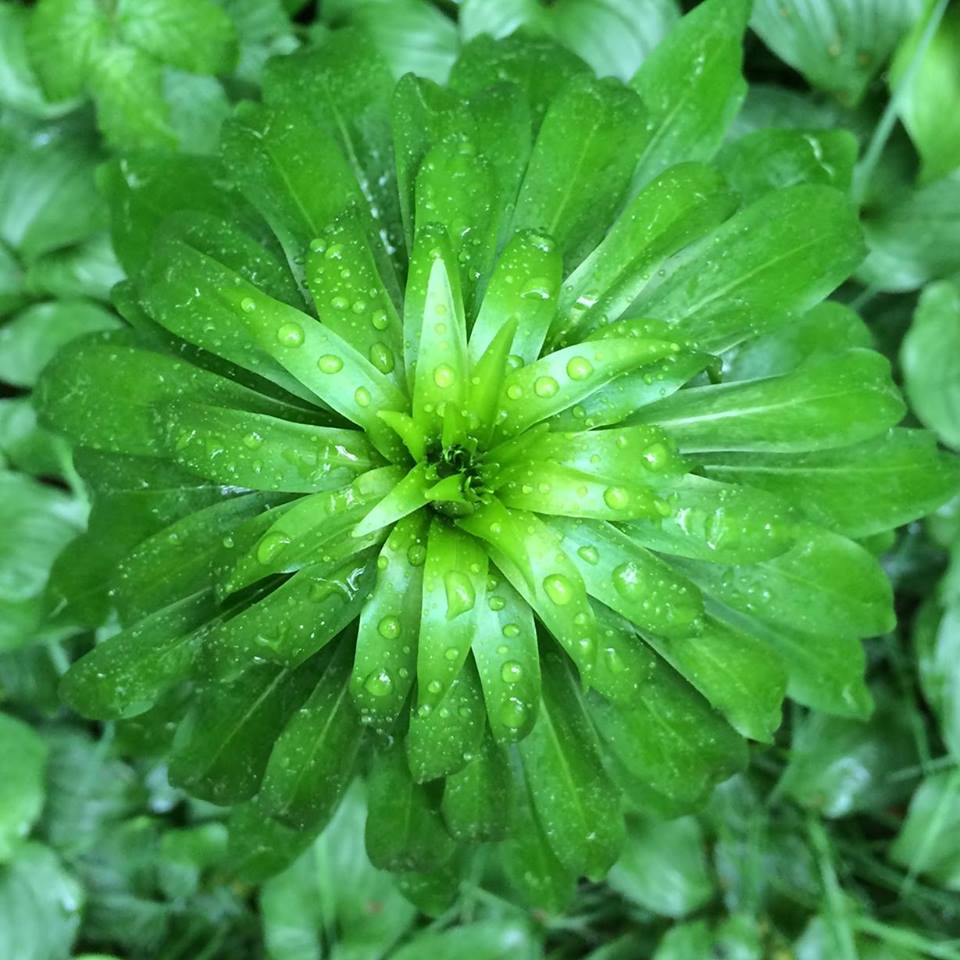“The very least you can do in your life is figure out what to hope for. And the most you can do is live inside that hope.” – Barbara Kingsolver
I recently attended a memorial for Theo, a man who had a big community, was deeply loved and is deeply missed. On one of the large white walls at the memorial was a huge photo of Theo – as big as his personality with wind-blown hair, glasses sliding down his nose and biting his ever-present cigar stub while looking back over his shoulder as if to say “Nice gathering!” The afternoon of shared stories was heartwarming, poignant and sad. There was also a lot of joy and delight, including stories that made us laugh so hard we cried. Here in Northern California we've been blessed with a very rainy winter and are now enjoying an especially verdant and lush spring, my favorite time of year. Yet in the midst of this gorgeous riot of fresh new life, I am struck by its tenderness, its fragility, the raw truth that all of it and all of us are utterly temporary. The imperative in the Zen teaching to "practice as if your hair is on fire" is no joke. Wake up! Today is the only today you've got, there is no other time. There’s no doubt that as we age, we go through repeated cycles of illness and health, loss and birth, sorrow and joy, and even cycles of hope - the many ways we hope for more of this or less of that. If we pay attention, we see this everywhere in the natural world – from the unfurling of the Fiddlehead Fern in the Spring, to the loss of millions of acres of pine forests to Bark Beetles, to the newborn fawn bouncing effortlessly across the pasture after its mother - all of life surrounds us all of the time. Here is a list of questions I use to spark my practice and keep me connected to my life, especially when things feel flat, dull, or uninspired. All of these questions provide a lens through which to examine our habit patterns, decisions, outcomes, and help clarify our motivation and intentions. I think of them as compass questions, questions that steer the course. See what you think.
- What, when I do it, will be for my long-term welfare and happiness?
This comes directly from the Buddha and is one of my favorite questions. I use it a lot. It accesses my deepest wisdom, and helps me avoid impulsivity and the potentially unintended or harmful consequences of reactivity. It leads me most often to the appropriate response.
- What makes you come alive?
This question comes from Howard Thurman, the 20th C African American educator and civil rights leader who is famous for telling his students, “Don’t ask what the world needs. Ask what makes you come alive, and go do it. Because what the world needs are people who have come alive.” Spend a little time considering this for yourself. You may rediscover some forgotten joys, things you'd like to put back into your life, or maybe even feel inspired to learn something new. Now is the time.
- What evokes your reverent heart?
We stand in reverence when we have those experiences that take our breath away, those times that we’re stopped in our tracks from an experience of beauty, joy, love or peace. I have a sense that the connection we feel at those moments are among the deepest and most profound. By staying connected to our reverent heart, we live with great respect and dignity for ourselves, others, and the natural world.
- “What has become clear to you since last we met?” Ralph Waldo Emerson was noted for greeting his friends this way. I love this question because it expects and challenges us to keep learning.
And now if you’re wondering how to even make time to consider these questions, try going for a silent walk. Wherever you live, go outside and walk for a while. Try for at least 30 minutes. If you can go somewhere quiet, that’s even better. Leave your cell phone behind. As you walk, feel your breathing, your feet on the ground, notice colors, smells, birdsong, the air on your cheeks. Periodically stop and look around. Just notice. Getting out for an intentionally quiet walk creates space in the mind and heart, calms the nervous system and just plain feels good. Best of any song is bird song in the quiet, but first you must have the quiet. - Wendell Berry, "A Timbered Choir: the Sabbath Poems"

